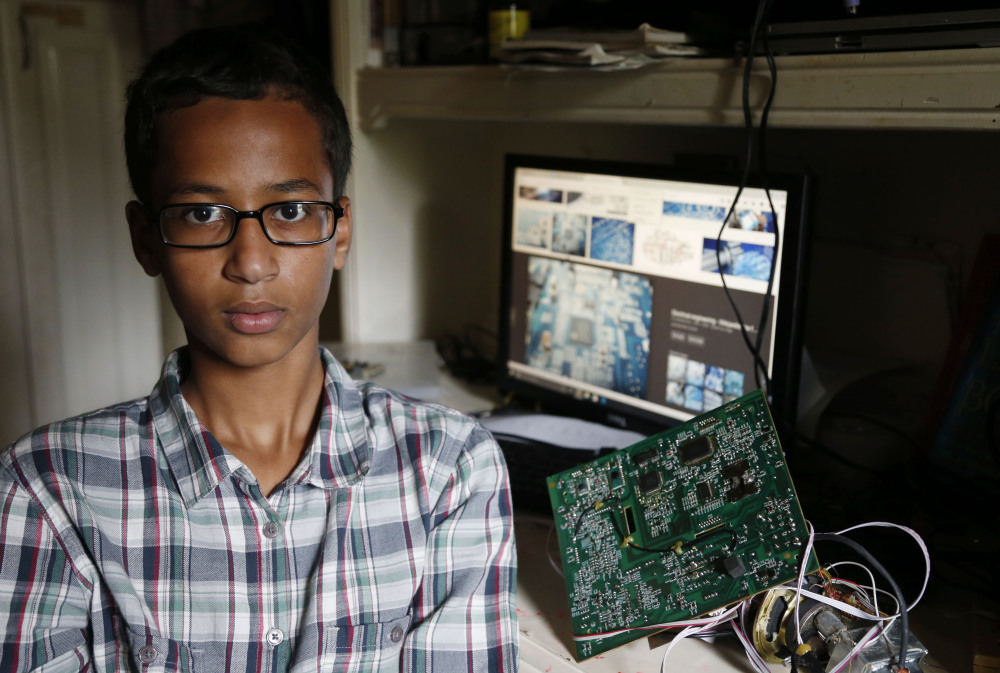There is a line between acting out of an abundance of caution and entering the theater of the absurd. Authorities in Irving, Texas, appear to have barreled across that line last week when they mistook a student-made clock for a fake bomb and marched a handcuffed 14-year-old freshman, Ahmed Muhamed, out of school and into juvenile detention.
Not all of the details of Ahmed’s arrest, and subsequent release, are known yet, including why school officials and police presumed a device Ahmed insisted was a clock was actually the prop in a possible bomb hoax. Was it something he did or said? Or was it his ethnicity? His Muslim faith? His name?
Regardless, there are enough known details to spur outrage at this young man’s treatment. Ahmed, who was new to the school and had an affinity for gadgets, told reporters he wanted to impress his new teachers with his abilities. So he cobbled together the clock — a power source, circuit board and digital display — in 20 minutes on Sept. 13, then took it to school on Sept. 14. Ahmed’s engineering teacher complimented him while advising him not to show it to others.
But after the clock’s alarm beeped in his school bag during English class, Ahmed showed it to the teacher, who told him it looked like a bomb. No, he said, it was a clock. She took the device, and a short time later the principal and a police officer escorted Ahmed out of another class and into a room where four more officers were waiting. He was interrogated, denied the ability to call his father, then arrested on charges he had brought a “hoax bomb” to school.
Who brought up the idea that the clock was a fake bomb? The English teacher, and then the police, who speculated that it looked like “a movie bomb” that could easily be “left in a bathroom or under a car,” which leads to the bizarre circumstance of a police officer’s imagination serving as probable cause for making an arrest.
The school and Irving Mayor Beth Van Duyne, who had a moment of infamy this year in a debate over the existence of sharia courts in Texas, have since doubled down, congratulating school officials and police for appropriate actions. Whether Ahmed was the victim of implicit bias by school officials and police, or even overt racial profiling, is unclear. That he was the victim of poor judgment by authority figures who should know better is certain.
And he deserves an apology.
Send questions/comments to the editors.



